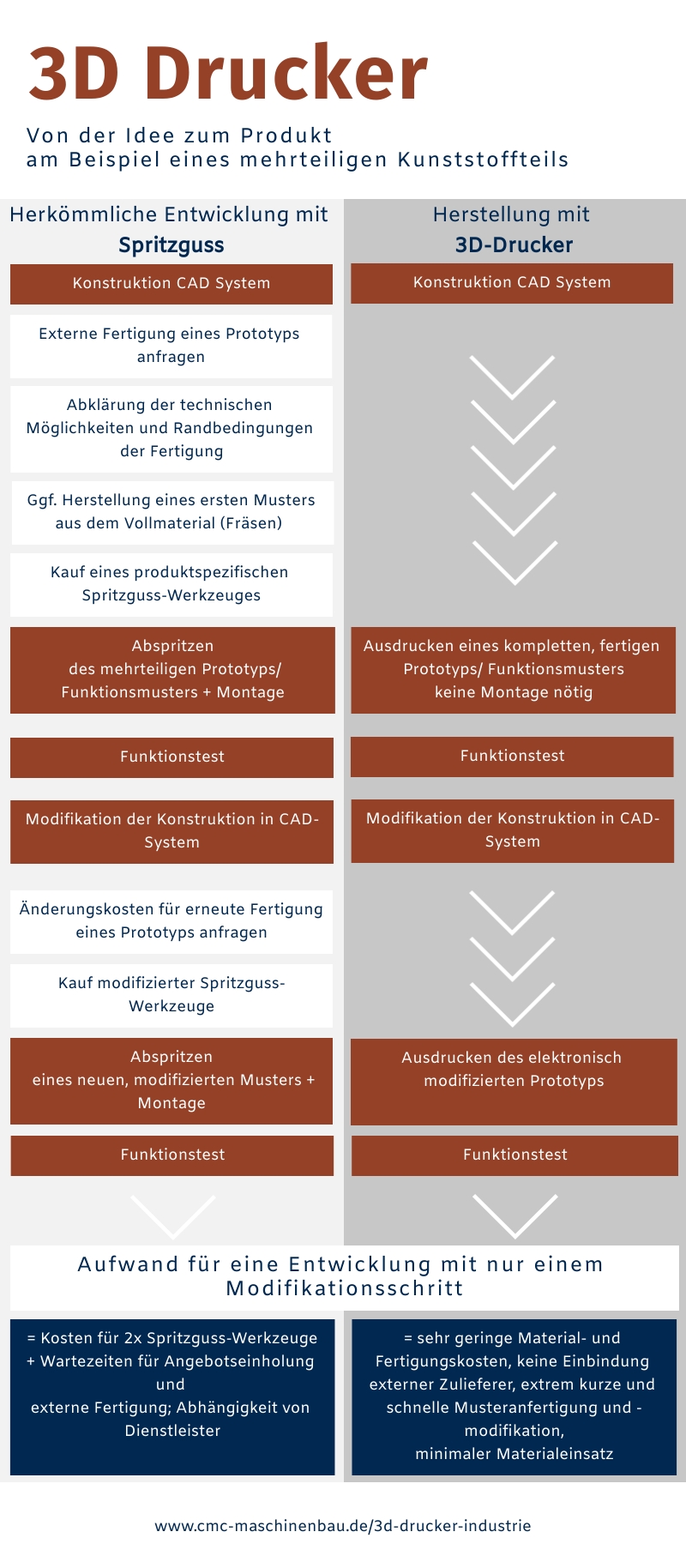3D-Drucker bieten einige wesentlichen Vorteile gegenüber anderen Produktionstechniken. Einer der wesentlichsten ist der Umstand, dass man sich bei der Konstruktion keine Gedanken darüber machen muss, wie und ob die Herstellung möglich ist. Doch es gibt weitere, wichtige Vorteile gegenüber herkömmlichen Fertigungstechniken:
Werkzeuglose Fertigung z.B. für Rapid Prototyping, Bemusterungen und Konzeptstudien
Keine zusätzlichen Formen, Vorrichtung oder Produktionsanlagen notwendig
Bedarfsgesteuerte Fertigung ab Losgröße 1 möglich (On-Demand Produktion)
Große Auswahl an unterschiedlichen Produkten (ABS, PP, PEAK, PETG, PEEK, PVA, PEI, PPSU usw.) zur Anpassung der Materialeigenschaften an die Funktionsanforderungen
Häufig deutlicher Gewichtsvorteil gegenüber Aluminium- und Spritzgussteilen bei gleichzeitig hoher Festigkeit und Steifigkeit (optimiert durch Karbonfaser-Filamente)
Extrem hohe Designfreiheit mit der Möglichkeit der schnellen, kundenspezifischen Anpassung
Virtuelle Konstruktion im CAD-System mit hoher Konstruktionsfreiheit ohne Begrenzungen klassischer Fertigungsverfahren
Möglichkeit zur Herstellung von Werkstücken, die mit klassischen Fertigungsmethoden schwer oder gar nicht hergestellt werden können
minimaler Abfallanteil, geringe Energiekosten, nachhaltige Fertigung
zeit- und kosteneffizientes Arbeiten bei Prototyping und kleineren Serien, Modifikationen sehr schnell verfügbar
Unterschiedliche Bauteilvarianten für Funktionstests können ohne hohe Werkzeugkosten produziert werden
durch Clusterung von mehreren Bauteilen in einem Druckvorgang hohe Fertigungseffizienz und Kosteneinsparung möglich
Die Herstellung von 10 gleichen Bauteilen kostet genauso viel wie die Herstellung von 10 unterschiedlichen Bauteile - Vorteil gegenüber Spritzguss: keine zusätzlichen Werkzeugkosten für Varianten
Verwendung von Standard-Dateiformaten, die industrieweit anerkannt sind
robuster, kompakter Aufbau, es ist nur ein Stromanschluss notwendig
Entwicklung neuer Produkte mit 3D Druckern
Vergleich 3D Drucker und herkömmliche Entwicklung mit Spritzguss

Vorteile von 3D-Druck